Self-Reliance: Escape Conformity To Be Your True Self
Ralph Waldo Emerson's essay "Self-Reliance" and the chains of conformity
Dear Reader,
Among all psychological phenomena, there is one which is the most widespread and the most impactful in the lives of every single one of us, its strong grasp ranges all the way from unchallenged acceptance to complete disaster within the society and in the minds that fall prey to it. What I am speaking of are the shackles of conformity. We only act in ways which are deemed fit for society, no matter how superfluous they are or what we truly feel is right.
The ways we act, the ways we dress, the ways we express ourselves, what we believe, are rarely chosen by ourselves but instead by the wind that blows. We live lives dictated by the whims of others, and live not as ourselves. Though many things we conform to are positive for society, such as following morality and the law, the vast majority of things the average person will encounter concerning conformity, however, do not include morality but regard the aforementioned personal matters which we suppress, often without thinking about it, in order to not be called “weird”, or have other labels or backlash stick to us.
There seems to be no set reason why fashion, trends or opinions are the way they are, yet everyone follows them like objective truth. We all mock the fashions of Henry VIII and the Victorians, yet do not hesitate to don modern fashion, as though because everyone else is doing it, it is correct. But if we were transported to 1879, on go our top hats. We dare not express our views or how we really feel in public because it is not the common opinion of the group, and expressing it would result in our disliking. We decide to follow what may be wrong simply because the crowd calls it just as to not face backlash. With an empty smile, we dare not pursue our real passions and dreams because others call them unrealistic or odd.
Or as Ernest Becker, the author of The Denial of Death, put it:
“…the ‘culturally normal’ man, the one who dares not stand up for his own meanings because this means too much danger, too much exposure. Better not to be oneself, better to live tucked into others, embedded in a safe framework of social and cultural obligations and duties.”
Unless with purposeful effort, it is difficult for someone to truly be themselves in the world which constantly tries to shape us.
As Friedrich Nietzsche put it:
“So long as men praise you, you can only be sure that you are not yet on your own true path but on someone else's.”
“But what is wrong with conformity?”, you may ask, “Is there not always a set of rules and guidelines which one must follow in order to be a part of society and to do what everyone else does is simply what one must do?”
While this line of argument seems to be prevalent among most in society, transcendentalist philosopher, Ralph Waldo Emerson, believed that the chains of conformity are what hold you down and prevent you from reaching your true purpose and true selfhood. To accept everyone else’s ideas and customs for no real reason other than because you would be called “weird” otherwise are merely the chains of conformity.
There is an individual flame inside each one of us, he believes, which is where our true passions, beliefs and self lie. In order to live our best and truest lives according to this flame inside us, which, if followed, cannot help us from becoming great, we must pull off our shackles and live truly, who we were born to be, fanning the flames.
To quote the singer, Noah Kahan:
“Paper bags drift wherever the wind blows.” [You do not have to.]
In this post, we will explore the essence of non-conformity, and why and how we should all aim for non-conformity, by diving into the famous essay Self-Reliance by Ralph Waldo Emerson, which has been regarded by many as the championing work on the idea of non-conformity.
Ralph Waldo Emerson’s philosophy, who was on the same branch of philosophy as Henry David Thoreau (who I have already covered in Walden: How to live life to the full), preaches that to be truly yourself is the highest achievement anyone can grasp. He even goes so far to claim that “imitation is suicide”. Meaning to conform, to cover that burning flame of You inside, is to kill your true self. Conformity, in that way, is like lying, and to truly be yourself, is the highest and bravest form of truth.
“It is alike your interest, and mine, and all men's however long we have dwelt in lies, to live in truth”
We will both explore the ideas of Emerson’s philosophy in stages so that you can grapple his ideas and attempt to live within the parameters of his idea of freedom in your own life. I will also make some important clarifications concerning Emerson’s philosophy at the end of the post, so that it is completely understood. If you put his methods and ethos into action, Emerson believes, that you cannot help but achieve greatness.
Trust thyself
“Whoso would be a man must be a nonconformist.”
At the core of Emerson’s philosophy is the belief that you have the capability to become great. What, he asks, is the difference between you and Plato, you and Socrates, you and Shakespeare? The answer is simple: they have spoken their hearts before someone else did it before them. In your soul, Emerson believes, is infinite truth and goodness which, if spoken aloud, would apply to all people.
“…the highest merit we ascribe to Moses, Plato, and Milton is, that they set at naught books and traditions, and spoke not what men, but what they thought.”
Emerson believes that there is a flame inside you which you must let burn. Inside it is the worth of your character - you must follow exactly as your soul dictates, because the true goodness at the depth of your character cannot possibly err - and it is this which conformity seeks to destroy. You must learn to trust your inner voice and believe that what you say can be worthy. With enough truth and introspection, anyone can uncover what lays beneath them. It is not necessary to believe that only others hold wisdom and you do not, and your ideas must be earnestly said otherwise someone will say the exact thing in your mind before you do.
“Else, to-morrow a stranger will say with masterly good sense precisely what we have thought and felt all the time, and we shall be forced to take with shame our own opinion from another.”
While you may doubt the validity of this claim, ask yourself: Who were the greats before they were great? No one but someone just like you. And the key to greatness is evidently inside you already. We study Shakespeare in school and in private, perhaps so that we may try to become as great as he. Well, what made Shakespeare as great as he? Was it not trusting in himself completely and giving to his talents? Did studying Shakespeare make Shakespeare? Quite to the contrary, all he had to do was to feed the flames in his own soul.
“Where is the master who could have taught Shakespeare?”
Indeed, this flame inside you with all your personality and truth bares everything which you need, and skating around what you are truly called for in order to conform to the tastes of others only shrinks your flame. Emerson believes, as mentioned, that to sacrifice your true individual self and conform to others is killing your unique soul.
“There is a time in every man's education when he arrives at the conviction that envy is ignorance; that imitation is suicide”
We must all accept that the intrinsic goodness placed inside us has been put correctly, and that our destiny and life shall always be prosperous should we trust ourself and our own convictions steadfastly, for that innate goodness within us, if followed correctly, linking with no vice or base desire, can only lead us to victory.
“Trust thyself: every heart vibrates to that iron string.”
Do not care what people think
At the heart of conformity lies social pressure and caring what the masses think of you. Undoubtedly, if you follow your true calling, standing on your own two feet instead of being pulled by the wind which everyone else chases to an indeterminable destination, you will face the whip of non-conformity.
“For nonconformity the world whips you with its displeasure.”
The comfort that everyone else seeks in the crowd, tucking themselves into others, burying their true faces, is the vantage point from where they will mock you. Whoever has the courage to be himself in this world, receives scorn for not fitting in. While the conformist’s life is comfortable, it is sheeplike, constantly looking at others to discover what they think and believe, whereas non-conformity means you do not live by the wills of others, but only your own (Self-Reliance).
You will be linked to the highest possible good inside you which you know cannot go wrong. You know, therefore, that there is no point in caring how the crowd scorns you for things which are superfluous, yet away from the crowd. Wear a top hat if it pleases you, quit your job and go travelling if the former displeases you, live your life, do not bow to what others think of you.
“What I must do is all that concerns me, not what the people think.”
Constantly running around in order to please others is an insurmountable goal. You can never please everyone completely, or get everyone to like you. It is surely better to find a few who truly like you for who you truly are, than seek the everchanging, fleeting approval of the superficial crowd. If you know what you are doing to be truly good and moral, what does it matter if others disagree, why are they correct simply because they are the majority?
“It is easy in the world to live after the world's opinion; it is easy in solitude to live after our own; but the great man is he who in the midst of the crowd keeps with perfect sweetness the independence of solitude.”
And as a random commenter on a YouTube video I once saw said:
“You can either be unique and please some, yet annoy a few, or you can be unremarkable and please no one.”
Be misunderstood
Another bite which catches many who try to escape the shouts of the crowd and carve out their own destiny is the pain of being misunderstood. When we are encouraged to be guided by our soul every day and speak our minds, we may say something one day which seems to contradict what we have said on another. Or, otherwise, our true selves may be so unique that the world never understands us and always calls us “odd”.
In the first case, we must again remember that our soul cannot be guided wrong. The plentiful truth and worth that is placed inside us is as great as any other, and though words we say on different occasions, which seem like overwhelming truth to us, may appear to be contradictory to one another, our flame cannot burn incorrectly. The way of our true nature cannot go against itself. Akin to the apparently contrary colours on an artist’s canvas, once you zoom out, the whole picture which lies in your soul will be clear.
“For of one will, the actions will be harmonious, however unlike they seem. These varieties are lost sight of at a little distance, at a little height of thought. One tendency unites them all. The voyage of the best ship is a zigzag line of a hundred tacks. See the line from a sufficient distance, and it straightens itself to the average tendency. Your genuine action will explain itself, and will explain your other genuine actions. Your conformity explains nothing.”
If, also, once you embrace the true qualities inside you, and you begin to express ideas and works which people again misunderstand in several ways, which is the second point I made, pay little heed to them. It is not bad to be misunderstood. All the great men in history were misunderstood. To be misunderstood is to have the possibility of baring those unique traits which make people of the future understand you, if not today.
In other words:
“Speak what you think now in hard words, and to-morrow speak what to-morrow thinks in hard words again, though it contradict everything you said to-day.—"Ah, so you shall be sure to be misunderstood."—Is it so bad, then, to be misunderstood? Pythagoras was misunderstood, and Socrates, and Jesus, and Luther, and Copernicus, and Galileo, and Newton, and every pure and wise spirit that ever took flesh. To be great is to be misunderstood.”
Seek only the truth
As mentioned earlier in the post, non-conformity is itself a kind of truth. Everyone must be true to themselves in order to thrive, conformity, then, is a form of lying or suicide. As seen in the last chapter, our true character cannot go wrong if we profess the truth which lay inside us. The true nature of our souls cannot go against their own nature:
“If we live truly, we shall see truly. It is as easy for the strong man to be strong, as it is for the weak to be weak.”
Everyone else is chiefly concerned with what everyone else is doing, not the truth and what is right. If the crowd adopts something immoral under some guise or ploy, everyone will adopt it. The non-conformist must determine for himself whether something is good or not, and not go along with what everyone else says. Finding the truth in all matters means that the non-conformist is the most moral. He will evaluate whether what the crowd accepts as good really is, and discover true goodness.
“He who would gather immortal palms must not be hindered by the name of goodness, but must explore if it be goodness.”
This search makes the non-conformist the more noble, the more truthful and the more moral if his search is true.
The price of non-conformity
The long road to non-conformity is not a simple one to travel. Evidently, by escaping the crowd you will encounter their taunts. You will face ridicule and backlash simply for not being one of them, but do not fall into it. The people in the crowd hide in conformity for comfort. Though they seem to have more power, you are all the more stronger and better. You live in the truth, and seek to follow exactly what is right, while they follow what everyone else tells them to, and what everyone else tells them is right.
“For nonconformity the world whips you with its displeasure.”
To heed the scorns and remarks of the crowd is to again favour the crowds opinion over your own, thus distinguishing your flame and taking you from what makes you unique. The price of conformity is never realising all of your potential, and living your happiest, truest life.
“To be yourself in a world that is constantly trying to make you something else is the greatest accomplishment.”
Nonetheless, true non-conformity is an extremely hard path to beat, yet, if you do manage to seperate yourself from the comfort of the crowd, and seek to fulfil what truth lies in your soul, you will undoubtedly achieve some form of greatness that people ought to remember. The crowd lives in mediocrity.
As Friedrich Nietzsche put it:
“Do you want to have an easy life? Then always stay with the herd and lose yourself in the herd.”
Living life to the full
As you may already have come to grasp, embracing true non-conformity will result in you living every aspect of your life to the very full. You no longer live by the whims of the crowd or completely seek to please others in how you live your life. We know that following what others say, if it goes against what you truly identify as your purpose, will only diminish the possibility of achieving the greatness inside you.
Non-conformity means you do not believe that one path necessarily has all the answers, but you follow your soul wherever it guides you to have a fulfilled life. The true non-conformist does not aim to satisfy what society labels as a “successful career” but lives his life every day, and to the full. Not succumbing to the arduous 9 to 5, if it drains his soul, not going to university just because everyone else is doing it, but what he truly believes will cultivate him properly.
Or as Emerson put it:
“If our young men miscarry in their first enterprises, they lose all heart. If the young merchant fails, men say he is ruined. If the finest genius studies at one of our colleges, and is not installed in an office within one year afterwards in the cities or suburbs of Boston or New York, it seems to his friends and to himself that he is right in being disheartened, and in complaining the rest of his life. A sturdy lad from New Hampshire or Vermont, who in turn tries all the professions, who teams it, farms it, peddles, keeps a school, preaches, edits a newspaper, goes to Congress, buys a township, and so forth, in successive years, and always, like a cat, falls on his feet, is worth a hundred of these city dolls. He walks abreast with his days, and feels no shame in not ‘studying a profession,’ for he does not postpone his life, but lives already. He has not one chance, but a hundred chances.”
Is society correct?
Before we finish, the question from the beginning will be readdressed in the exact way Emerson answers it in his essay. Many may say that society is correct, so we must follow it, yet Emerson would argue that there is no good reason why society is correct other than people arguing that point to try and fit into it. Apart from moral lessons society teaches, though Emerson believes that the knowledge of what is truly good lies within us already, there is no reason to believe the customs of everyone else, and disregard our own truth. The customs of society change and shift constantly, and are merely a mask. No true worth should be placed on them. With every new invention and fashion, so society’s façade changes, but it is all just a costume, what man truly is deep down cannot change.
“No greater men are now than ever were. A singular equality may be observed between great men of the first and of the last ages; nor can all the science, art, religion, and philosophy of the nineteenth century avail to educate greater men than Plutarch's heroes, three or four and twenty centuries ago.”
While the constant marches of society seem all-powerful, they all shift and change. The non-conformist is unique because he or she is sturdy in his or her convictions. There is no bending with the wind like everyone else does. Using the same example, one-hundred-and-fifty years ago everyone would have worn top hats, but now the same society views such a garment as laughable, are they more correct now or were they more correct then? More importantly, why were either of them correct? That is why it is up to the non-conformists to decide for themselves what is right, instead of flying to the everchanging whims of the crowd.
“Society never advances. It recedes as fast on one side as it gains on the other. […] Society acquires new arts, and loses old instincts. What a contrast between the well-clad, reading, writing, thinking American, with a watch, a pencil, and a bill of exchange in his pocket, and the naked New Zealander, whose property is a club, a spear, a mat, and an undivided twentieth of a shed to sleep under! But compare the health of the two men, and you shall see that the white man has lost his aboriginal strength.”
Common misconceptions
By rejecting flawed or pointless social norms, many people may assume that you are rejecting all norms or becoming an egoist.
Yet, this must be where an important distinction is addressed. Non-conformity differs from egoism because you should always care for others and never be selfish, here Emerson is misunderstood. It is not placing value on yourself above others, but deciding for yourself what is truly right.
True non-conformity is not doing what is different simply for the sake of it, but doing what you truly believe is right no matter what, which may or may not align with some things the crowd believes on occasion. It is not saying that everyone else is wrong and stupid, but discovering for yourself what is right, and trusting in your soul to guide you more than fleeting and changing external winds.
Emerson’s philosophy is also not an excuse for base people to do bad things. The true depth of your character and purpose does not lie in sensuality or immorality, the innate goodness within you which you are following will not link to such things if followed correctly.
“The populace think that your rejection of popular standards is a rejection of all standard, and mere antinomianism; and the bold sensualist will use the name of philosophy to gild his crimes. But the law of consciousness abides.”
In conclusion
Strangely, I first read Self-Reliance by Ralph Waldo Emerson while sitting on a bench in the woods, as Everything Scholars do, I suppose. It was a brief hour or so full of frantic emotion and just as frantic underlining and noting, as the best short works always spur on.
I had already read Walden by Henry David Thoreau and that book alone taught me incredible lessons (available in the post I made about him) which I would come to value forever after. The essay Self-Reliance was equally as earth-shattering as his contemporary’s book and both works have certainly shaped me as a person very much. It is likely that few days pass where I do not think about some aspect of their philosophies, either their literal works, or about one of the branches of the tree of the same seed they planted in my head which has grown and developed in my mind.
Both the works are truly incredible reads, and demonstrate perfectly the value and depth of reading, and how it can help you grow. Even though my posts on both of the works should provide you with a great overview of the essay and book, I would always recommend to everyone that they also find their own copies, and devour them with the pleasure as is deserved of them, so you may take your own value from the works.
Despite the fact that they seem to evidence themselves by changing the lives of all that read them, I believe the truth the two authors speak is verified by similar recurrences in other parts of non-fiction and culture. Here are a few examples below:
In the 2011 book, The Top Five Regrets of the Dying, the number one regret is:
“I wish I’d had the courage to live a life true to myself, not the life others expected of me.”
It’s certainly important to heed these folks’ advice. The essence of non-conformity lies in that quote.
The aforementioned quote from Shakespeare:
“This above all: to thine own self be true.
And in Luke 12:57:
“Why don’t you judge for yourselves what is right?”
I could preach these ideas for hours. If anything, the moral of the story is to simply be yourself, trust in your good soul that guides you, and do not confuse your innate truth with lust or base desire, that is misguided. The truth deep inside you can only guide you to the greatness which you were meant to fulfil. Believe this, and be unstoppable.
If anything, please keep the very last two sentences of Self-Reliance in your mind:
“Nothing can bring you peace but yourself. Nothing can bring you peace but the triumph of principles.”
I hope this post was worth your while.
Kindest Regards,
The Everything Scholar


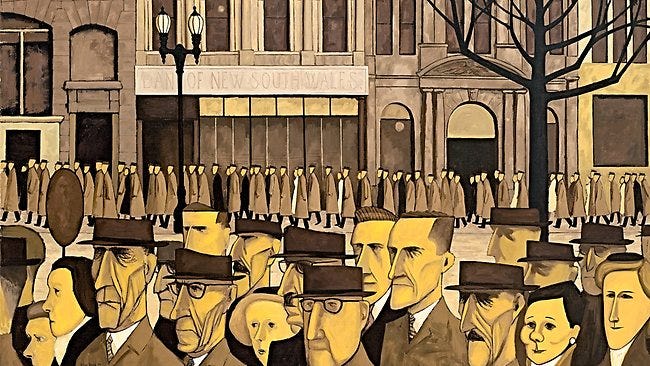
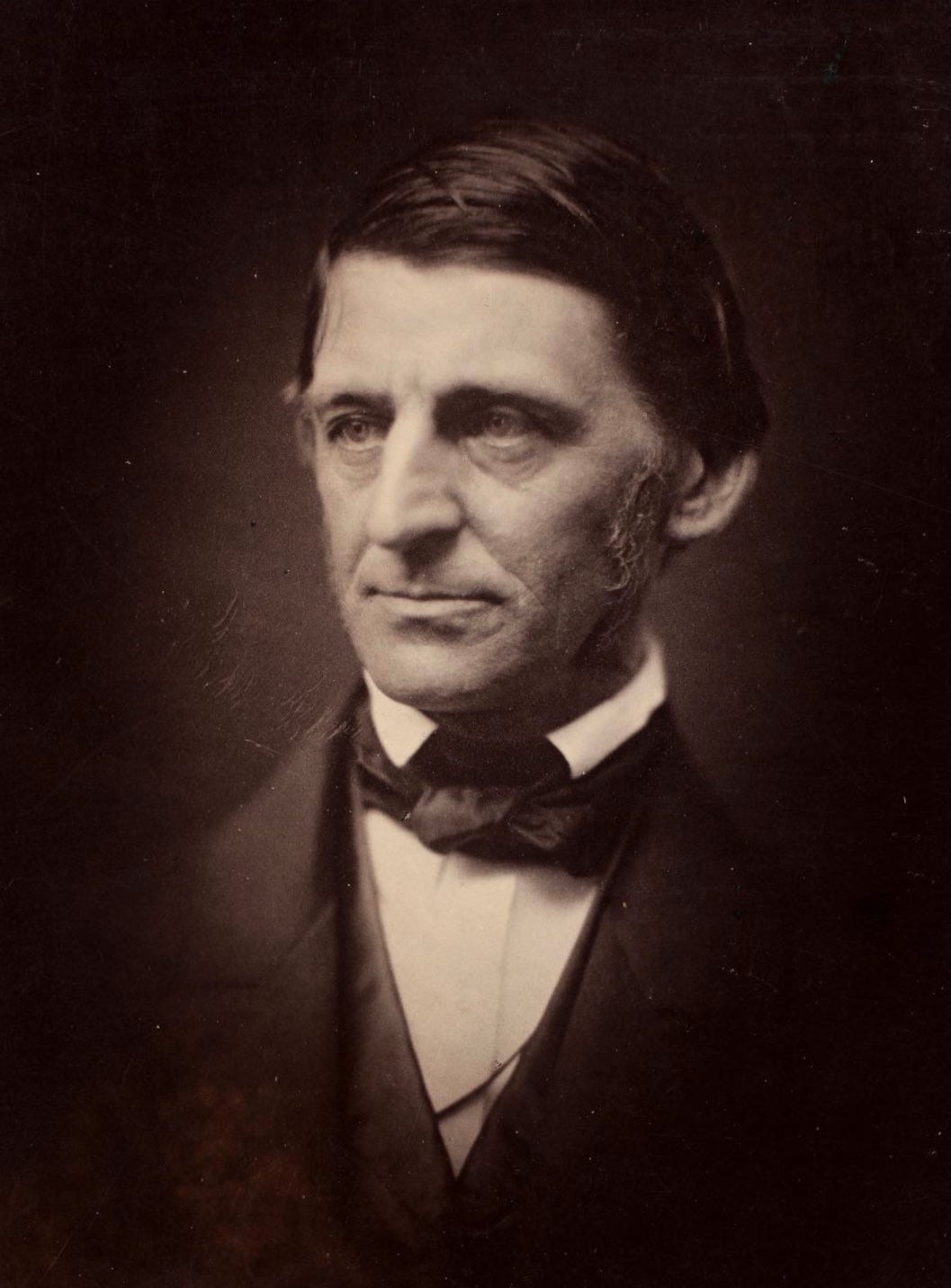




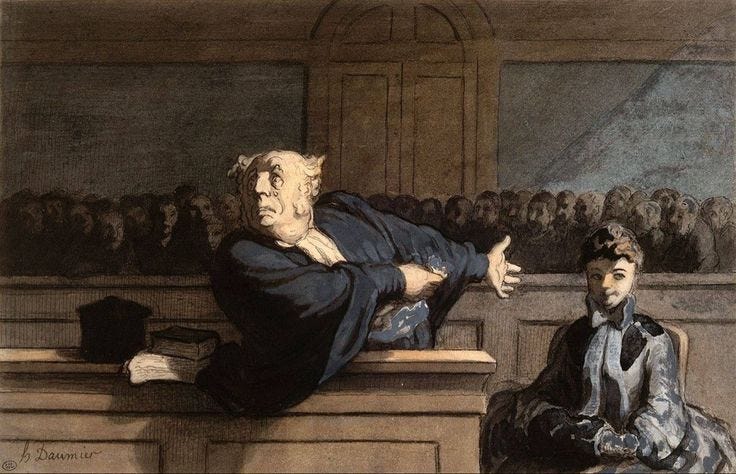

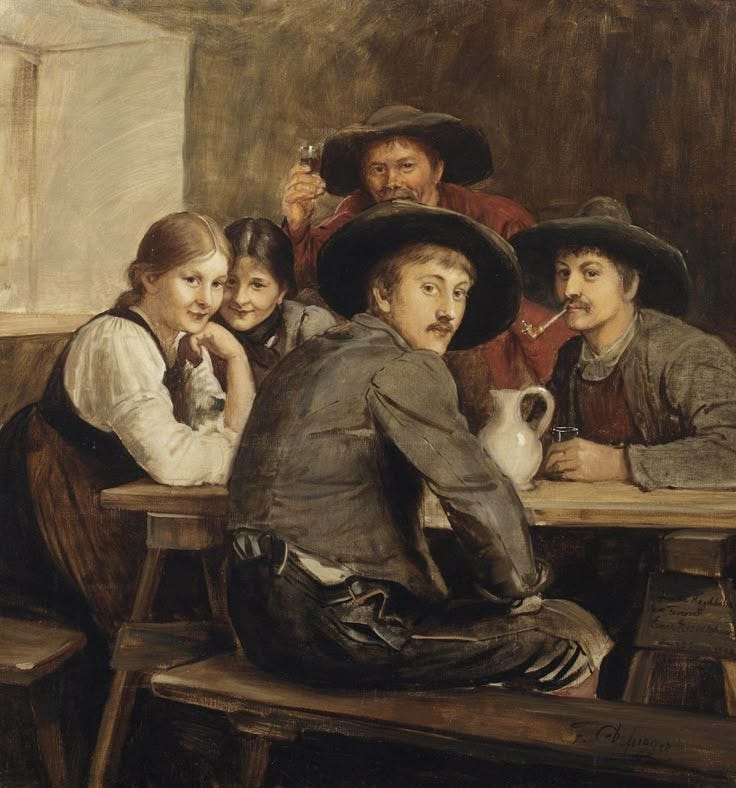
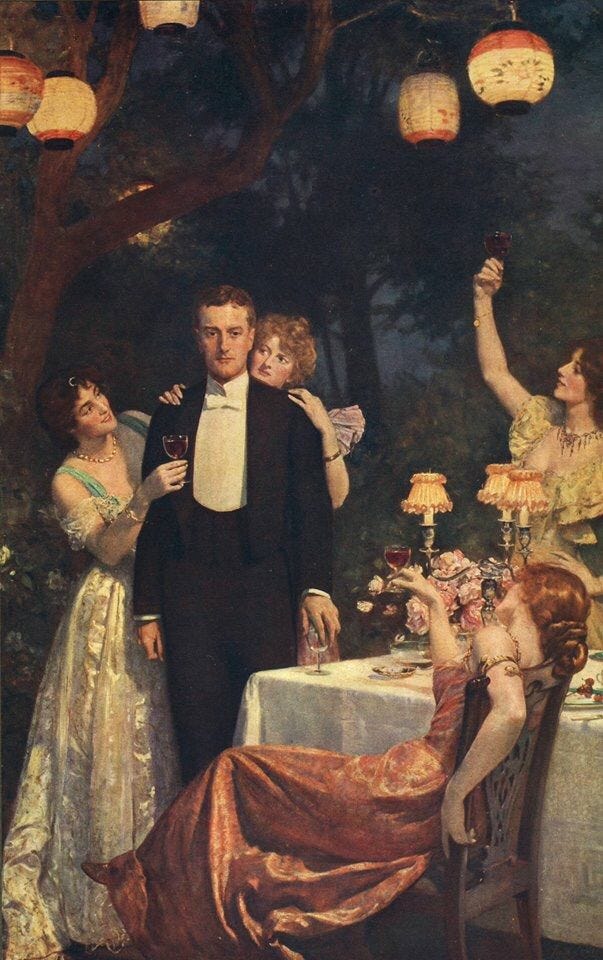
“the individual flame”
My revered High School English teacher gave me the Ralph Waldo Emerson book as a graduation present.